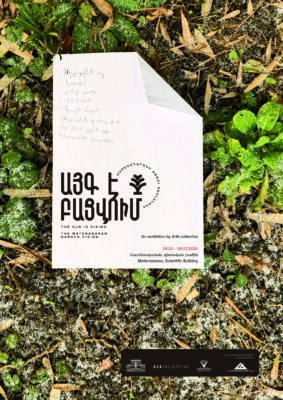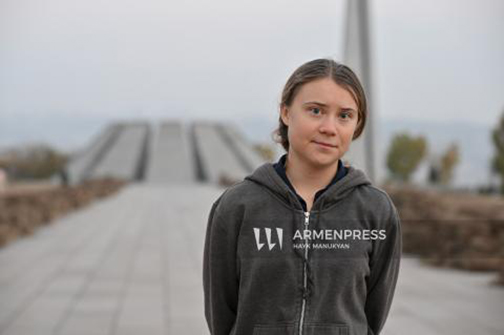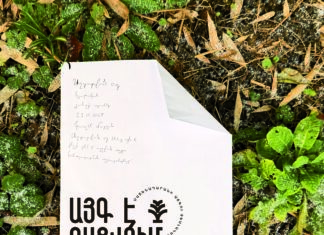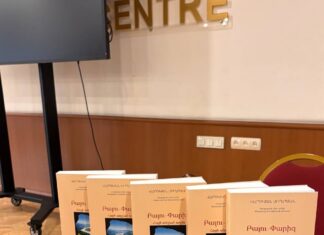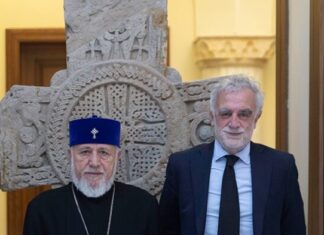YEREVAN (Combined Sources) — Swedish environmental activist Greta Thunberg arrived in Armenia on November 13 after visiting neighboring Georgia.
Thunberg in the past week has taken actions and spoken out against the COP29 United Nations environmental conference happening in Baku. Speaking Monday at a protest in Tbilisi, she called Azerbaijan “an authoritarian petrostate” and added that the choice of location was “beyond absurd,” according to a Washington Post story.
According to the Associated Press, Thunberg described Azerbaijan as “a repressive, occupying state, which has committed ethnic cleansing, and which is continuing cracking down on Azerbaijani civil society.”
She charged that Azerbaijan has used the summit as “a chance to greenwash their crimes and human rights abuses,” AP reported.
“We can’t give them any legitimacy in this situation, which is why we are standing here and saying no to greenwashing and no to the Azerbaijani regime,” she said in Tbilisi on Monday.
In Armenia, Thunberg was welcomed by Oleg Dulgaryan, the Head of Centre for Community Mobilization and Support (CCMS).
